“IOS Yearbook – 2023: Status of Quality School Education among Muslims in India” released
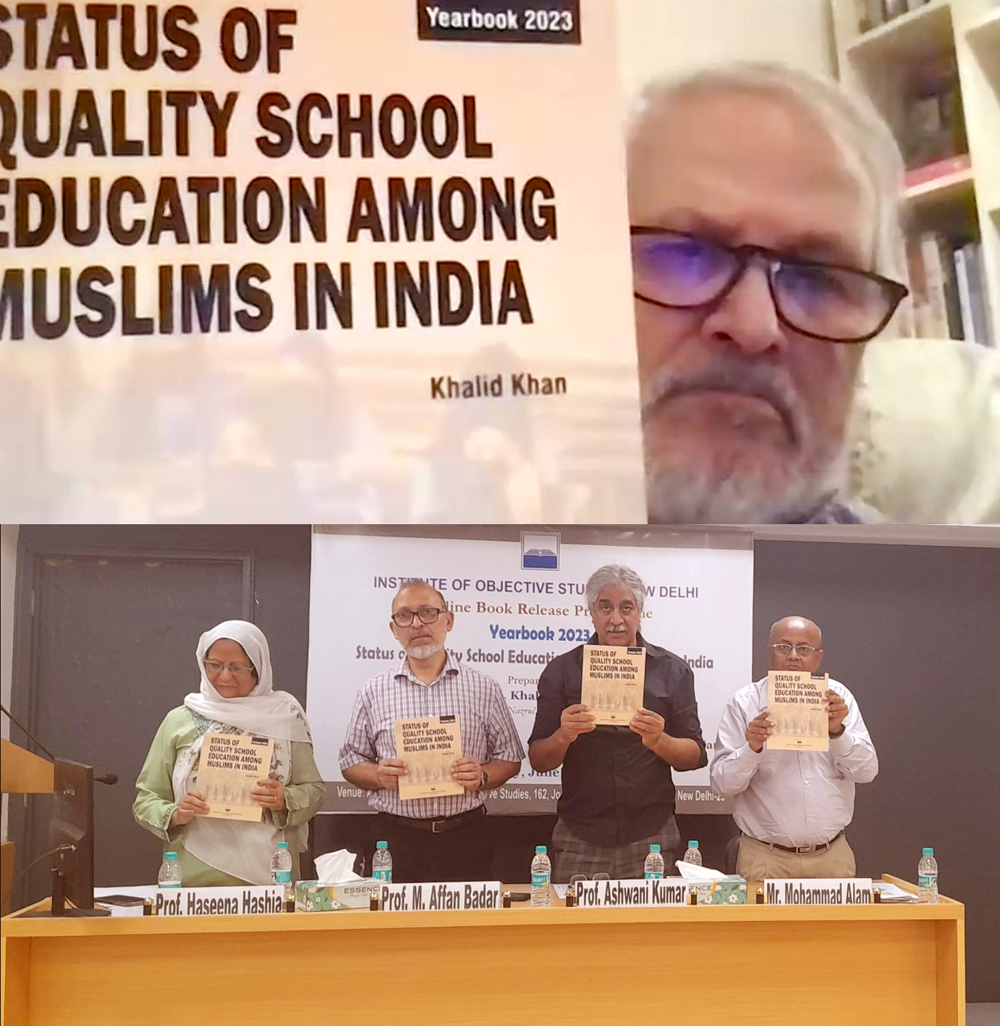
“IOS Yearbook – 2023: Status of Quality School Education among Muslims in India” released
New Delhi: ‘Yearbook – 2023: Status of Quality School Education among Muslims in India’, prepared by Dr. Khalid Khan, was released at an online function organised by the Institute of Objective Studies on June 8, 2024. It may be recalled that the yearbook is the latest publication of the IOS.
The function began with the recitation of a verse from the Holy Qur’an by Maulana Adnan Ahmad Nadwi of the Urdu section of the Institute with its translation in Urdu.
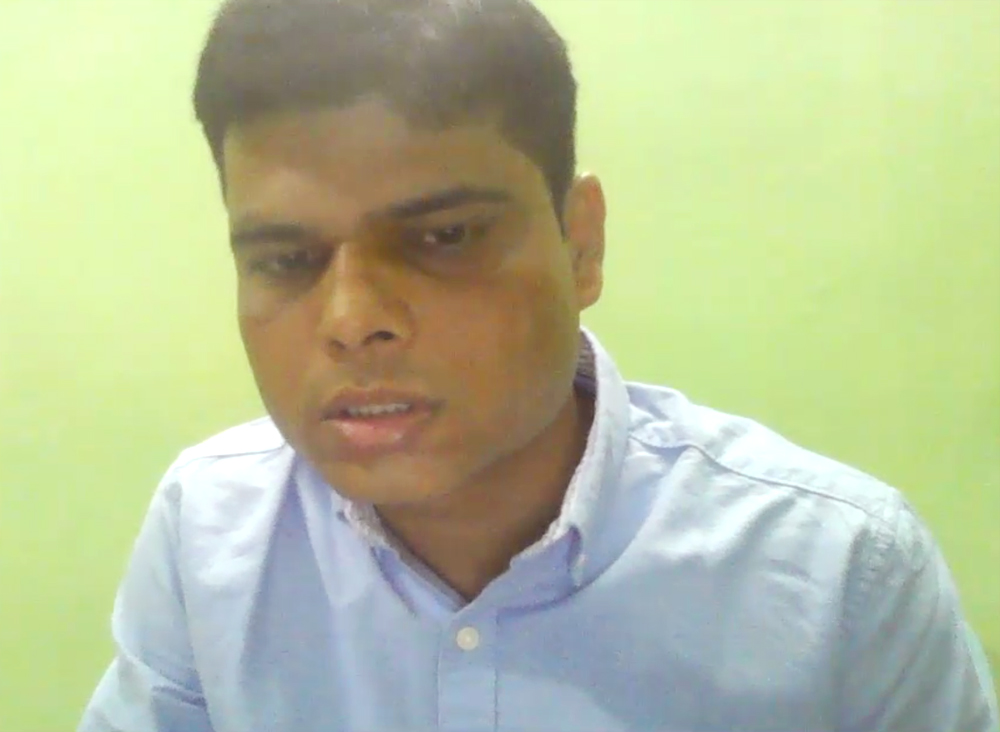
Introducing the yearbook-2023, Dr. Khalid Khan, assistant professor at Kazi Nazrul Islam Mahavidayala, Asansol, said that this study was focused on the minority concentration districts. His study covered 710 blocks of 20 minority concentration districts spread over U.P, Bihar, Jharkhand, West Bengal and Assam. Socio-economic parameters of these districts as a whole were used to bring them at par with the national average. It was aimed to study the attainment at different levels. Referring to the chapterisation of the yearbook-2023, he said that Muslims in India’s public policy on school education were located. Religion-wise disparities in school education at the all-India level were studied. He observed that serious concern with regard to the backwardness of minorities was witnessed. Some steps were, however, taken under Prime Minister’s 15-point programme for the minorities. He made special mention of the Sachar Committee’s key findings in regard to the educational backwardness of Muslims. He emphasised that the minorities’ access to facilities, their development and quality education was necessary.

Releasing the yearbook, former lieutenant governor of Delhi, Mr. Najeeb Jung said, “We all know that quality education is missing in these states. South India has done a very good work in the field of education. But in the North, it is missing. Sachar Committee was set up to study the root causes that lead to the socio-economic and educational backwardness of the minorities. But nothing happened despite the committee’s report was submitted to the government and made public”. He remarked that Muslims were repeatedly targeted for “their appeasement”. But the fact was that the minorities were missing from all the schemes of the government of India. He said that the main problem before the Muslims in India was their inaccessibility to education. Since education was a basic right, it was obligatory on the government to educate every citizen of the country. But the problem was that whenever a decision in favour of Muslims was taken, it was negatively propagated as a result of which they remained educationally backward. He held that the number of madrasas imparting religious education was very large, and they were running without government aid. The curriculum of these madrasas was purely religious and now was the high time to revise their syllabus by including contemporary education in it. He said the Muslim populace still attached utmost importance to the leadership of the ulema and heeded their advise.
Commenting on his visit to Samarqand and Bukhara, he said that the madrasas there had curriculum which contained all the basic subjects. There were no distinction in these madrasas. He urged the madrasas to bring about change in their syllabus and keep themselves abreast of modern requirements. He was all praise for the tribals of Madhya Pradesh who were doing well in the field of education. He called for bringing in a change in education and cutting the rate of drop-outs who were forced to take up some non-skilled jobs due to lack of education. Underlining the importance of education, he noted that Israel came into existence in 1948, but she beat Saudi Arabia, Bahrain, Iran etc., because of the power of education. Thus Muslims today were in a ‘catch-22 situation’ in which they were not sure about what to do. He said that religious education was wonderful, but it would remain incomplete without modern education. In Uzbekistan, madrasas were teaching science and medicine along with the religious education. The question today was – how to educationally empower the Muslim community. He appreciated that a great work was done by the Sachar Committee as well as the IOS. He laid stress on the need for doing the kind of work being done by Jamia Millia Islamia in giving coaching to IAS aspirants. He talked of giving quality education to the community.
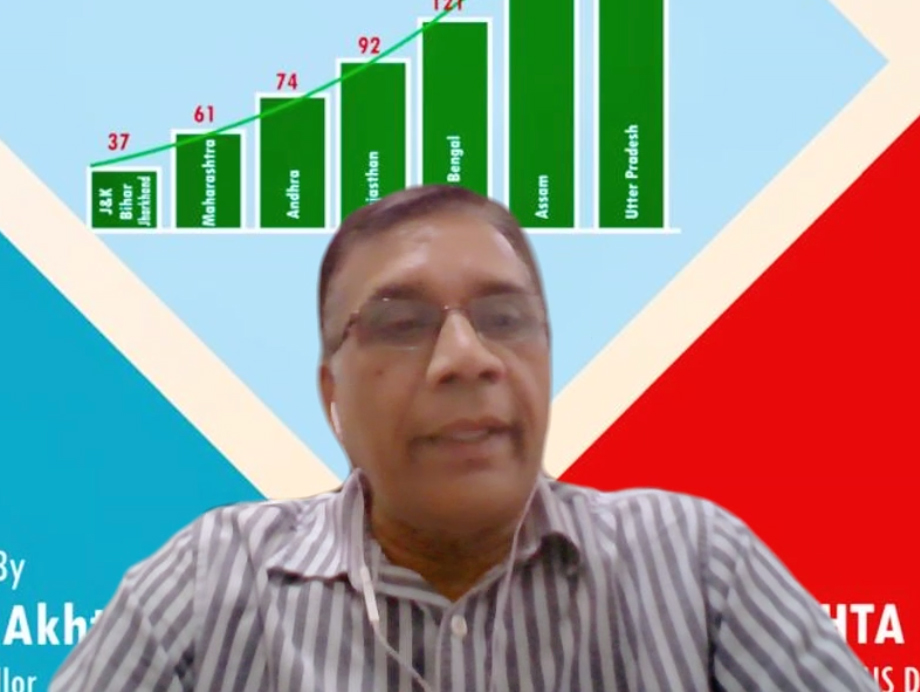
Prof. Arun C. Mehta, former professor and head of the department of educational management information system, NIEPA, New Delhi, held that the Sachar Committee conducted survey to collect data on the status of Muslim education. It recommended a data bank to digitise the progress of Muslim education at panchayat, district, state and central level. But the committee’s recommendation did not see the light of the day. He said that not much development had taken place so far as educational data of Muslims was concerned. This yearbook on education series by the IOS thus was good for further development. All India survey of education for the years 2012-2024—grade II and III was available. Secondary education data, district education data system should have been updated. For the year 2022-23, student-wise data should be collected. It might be worked to some 22 crore population. Data from Muslim minority districts was available. He said that there should be a shift from Muslim dominated districts to Muslim education data. Different age-group should also be factored in, he added.
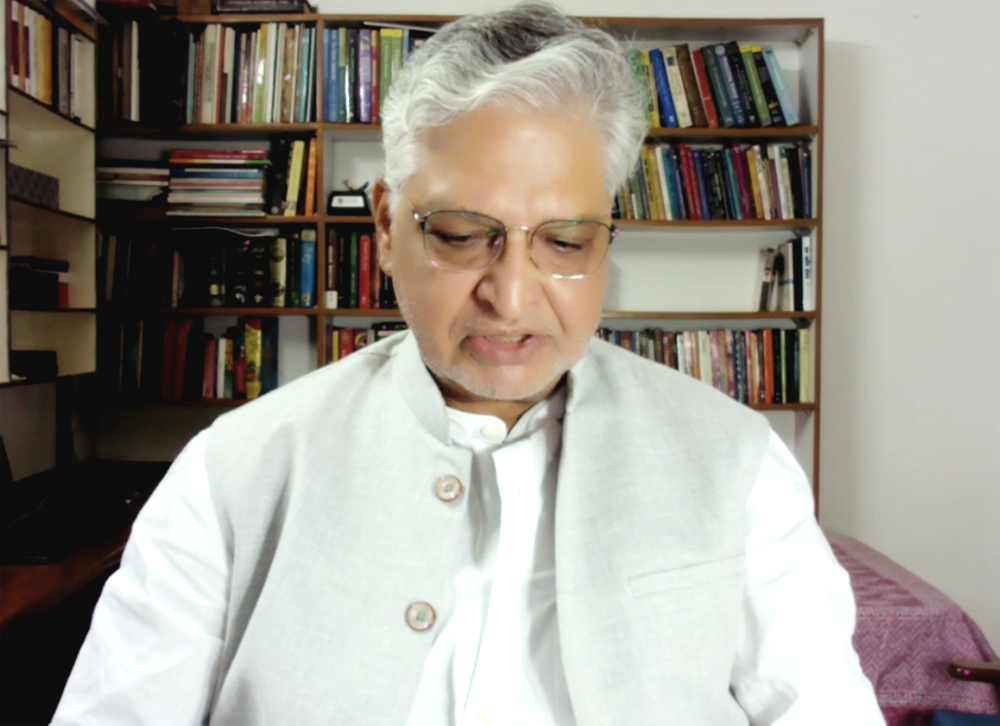
As a key speaker, former Vice-chancellor of Central University of Himachal Pradesh and professor in the centre for management studies, Jamia Millia Islamia, Prof. Furqan Qamar, called for diagnosing the ailment. In order to do it, data collection was very necessary. But what was important was good education meaning thereby good schools and quality education. Then it came to action and action should be initiated at the government level to benefit the community. He said that he had been doing this in the field for a long time. As far as the data was concerned, it was available at the National Sample Survey Organisation. He congratulated the IOS and Dr. Khalid Khan for working on an important work on the status of education among Muslims. He said that a set of data was provided by the Sachar Committee. Much had changed since the report was submitted and now it needed to be updated. He observed that he was in the know of it that there was dearth of the data. But still, data on education in the community should be collected. “Reliable data was very difficult to get, but we could identify all sources where data is available and that data should be collected from them. He asked for collecting Muslim connected data since 2014 in a systematic way. Then the data should be developed and analysed.” It must also been seen if any kind of change had taken place or any development took place or not. While emphasising the need for collecting data every year, he suggested that the enrolment of Muslim students during 2014-19 should be studied. He also said that the drop-out rate from elementary to higher education should be examined. He maintained that the IOS had access to intellectuals and thus it could find out details from them. And based on these details, the data could be documented. The IOS had national and international contacts which could also be utilised for the purpose, he pointed out.

Professor (Retired), IASE, Faculty of Education, JMI, Prof. Mohammad Akhter Siddiqui, described the yearbook-2023 as meaningful. He said that the quality education should not be confined to secondary education. There was proxy quality and no real quality education. “We can assess the facilities, like books and quality education. This study shows the position of enrolment at primary and secondary level, and the level of dropouts. Dr. Khalid Khan collected and analysed the data. He called for bringing children to quality education inside the class room because they did not reach the level required. Some concrete measures would have to be taken to ensure that the quality education was available in the classroom. He said that National Assessment Survey at the primary level was available. But, there were other surveys that differed from the national survey. He said we are lacking quality education. Quality of education is measured when the children come out for the next class. In schools, students have freedom, but this is not the case in madrasas. It is not clear what is being taught in the classroom of Urdu medium schools.” He said that what Dr. Khalid observed was very important. He presented state-wise data. National Open learning did not indicate the number of Muslims student drop-outs, he added.
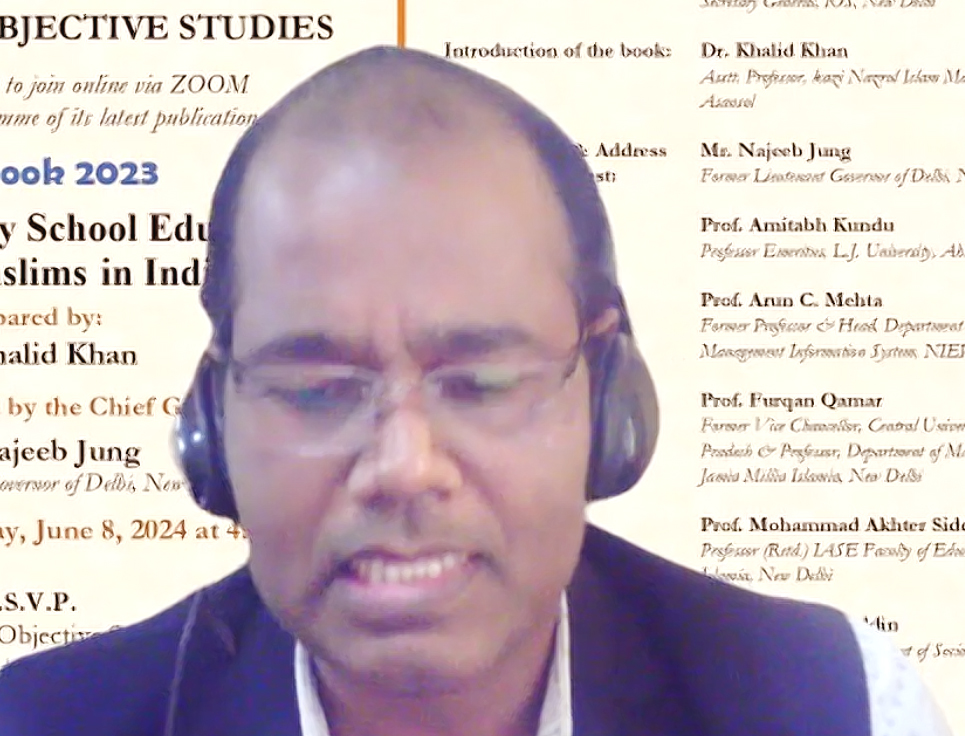
Associate professor, department of sociology, Maulana Azad National Urdu University, Prof. K. M. Ziyauddin, emphasised the need for controlling the rate of drop-outs. Quality education was the indicator of the kind of funding and facilities in the school. There was a complete gap of education between government and private schools. He asked the Muslim intellectuals to push for controlling the drop-out rate. Tracing the cause of low enrolment of Muslim students, he said that distance between the school from home led them to go to the madrasa. The spirit of serving back to the community was also missing. He noted that elsewhere Muslim students were not coming up to the level of Delhi. There was also a question as to how to push Muslims to come to the domain of the subjects of other streams. He suggested to do some quality study on the education of Muslims.

Mohammad Affan Badar, Professor and Director, Bailey College of Engineering & Technology, Indiana State University, Indiana, USA, in his guest speaker speech, held that from the engineering point of view, data was important. The question was how the drop-outs could be compensated for the loss. The second question was how to improve the educational backwardness of the Muslim community. He said that the issue of quality education could be addressed if serious efforts were made. He hoped that what had not been covered in the yearbook-2023, would be covered in the next yearbooks in the series to come.
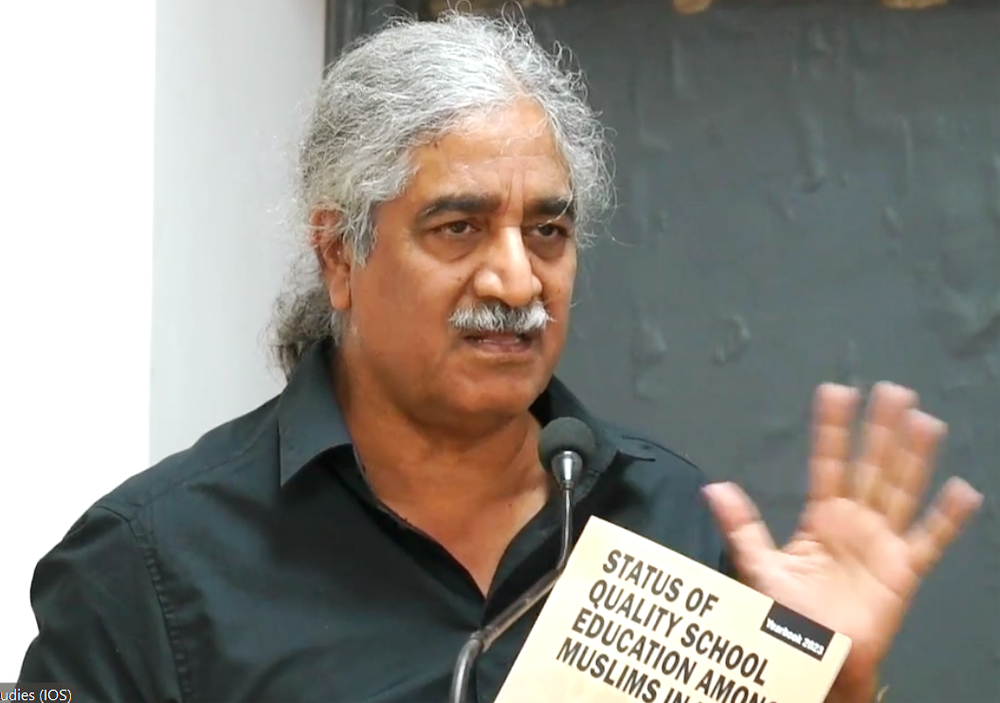
Prof. Ashwani Kumar, professor at the Tata Institute of Social Sciences, Mumbai, another guest speaker at the function, described the yearbook-2023 as wonderful. Referring to the Sachar Committee Report he said it was a fundamental document. This yearbook was fully devoted to education since education was a secondary element of development. He briefly spoke on the growing inequality of the Muslims in the field of education. It was a de jure disenfranchisement of inclusive idea and diversity. He held that quality education meant good education and good education made a good human being.
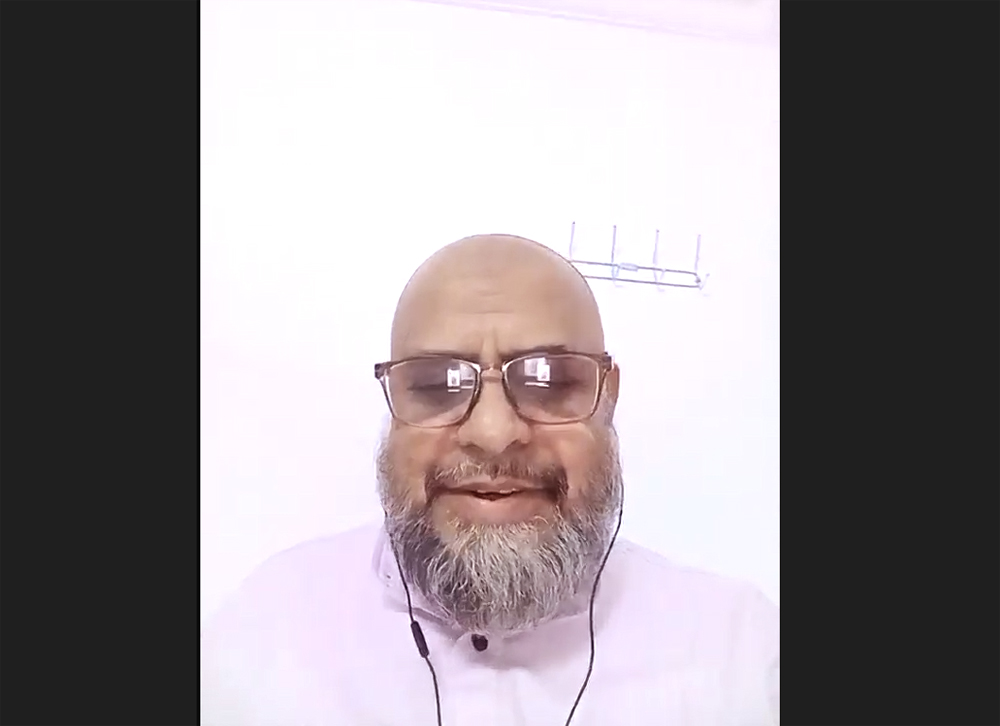
In his presidential remarks, the Chairman IOS, Prof. M. Afzal Wani, observed that whatever IOS did, had a purpose. Thus the Institute found it necessary to have a yearbook with a purpose—way to go forward. It had an expression of reality. “We have to be conscious of the context for incentivising. But what the reality is. There is a lot of secondary data and the need is to obtain primary data on education. There is no reference to the leadership of education. It should be seen how action has been taken to activate education as a fundamental right.” He said that statistically, there should be evaluation at the age of 14 years of a child. It should be found out how much action had been taken by the state because this was the responsibility of the state to give education to every child. Besides ensuring education at the primary and secondary levels, it should be seen that proper facilities were available. If everything was available, it would enable to make a favourable environment. He explained the value of quality education. He said that the state had failed to create an enabling environment in educational institutions.
Prof. Wani maintained that no school could run without basic facilities and a library. “We should have the reality checks and start working accordingly. What is the minimum is that everyone has a right to education. There is no need to categorise people unnecessary. The IOS is giving you thought, idea, statistics, etc., and this should be taken seriously. Thus the statistics has to be given with reference.” “Regarding Muslims, he said that it was related to the system that had to be followed. Referring to Iqra, he noted that it was as what one needed like water. There should be collective initiative that everyone has education.” “You should develop initiative for action. There should be more purposefulness. A word of knowledge is very important.” He held that education system had to be modified and developed. It should have an ability to understand. Leadership at levels of education, whether technology or literature, was a must. He said that madrasas were also working in a big way. He concluded saying that suggestions were always welcome in order to correct the shortcomings, if any.
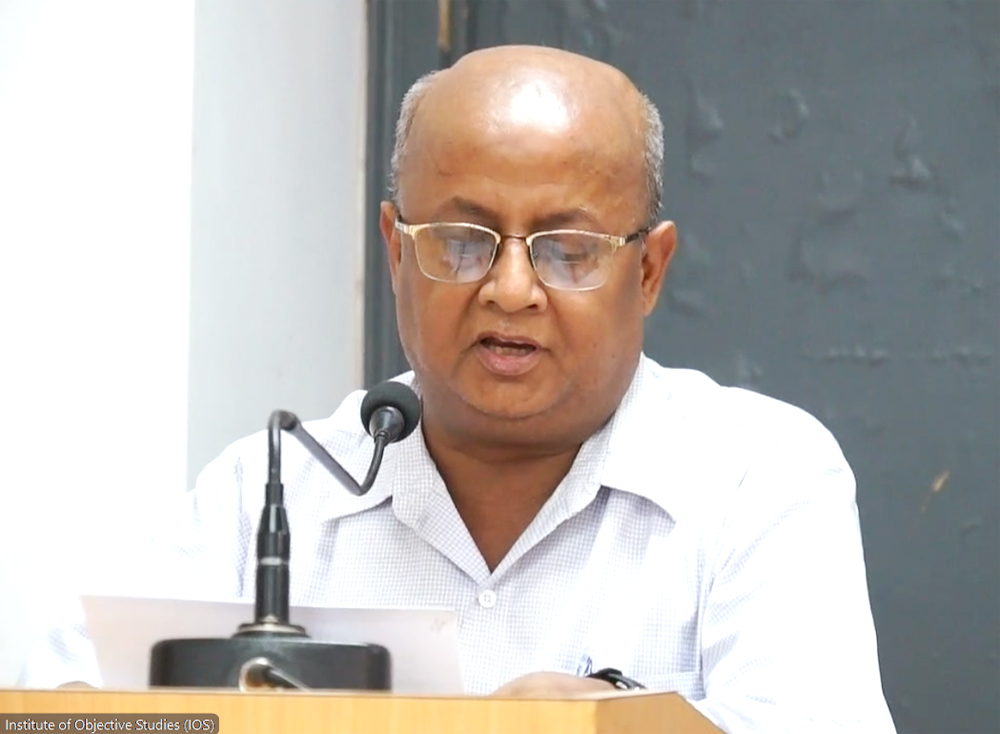
Earlier, Secretary General of the IOS, Mr. Mohammad Alam, in his welcome and introductory remarks, said “Institute of Objective Studies is a non-political and not-for-profit public organisation recognised at the national and international level for promoting frontline academic research and publishing books and journals on contemporary issues and themes. IOS enjoys consultative status (Roster) with the Economic and Social Council of the United Nations”. He observed that since its inception in 1986, IOS had been widening the scope of its work by conducting surveys in areas of concern for the state and civil society, and actively engaging itself in the fields of social welfare, education and management. The IOS was working on development models suited to Indian conditions, particularly to uplift of the poor, marginalised and deprived sections. It is well-known for its initiatives and interventions to foster world peace and efforts to develop mechanisms and create conditions for conflict resolutions. He said that the IOS had always done its best to uphold the ideals of diversity, secularism, democracy, rule of law and constitutionalism. The IOS is also known for its work on regional problems and among marginalised sections in different regions of India. It enjoys high credibility and visibility for bringing together a galaxy of social scientists, policy planners and social activists for creating an intellectual movement and network of scholars, community leaders and social activists.
Mr. Alam held that the institute had so far published 450+ books and reports on a range of subjects from education, economics, politics, technology and culture to development, religion, philosophy and human rights by eminent Indian and international scholars, writers and journalists. It has so far organised 1300+ programmes, conferences consultations, seminars, symposia, academic research workshops and discussions at national and international levels in association with well-known universities and organisations in India and abroad. Besides bringing out more than 15 books on education, the IOS has started work on the preparation of the yearbook on Muslim education in India in the year 2021 under the broader concept of “Synergising Education of Muslims in India” wherein it was decided to prepare and publish yearbook every year to put forth data and recommendations related to the educational condition of Indian Muslims on different key indicators of education, like enrolment, rate of drop-outs, retention, quality education, level of education, infrastructure facilities, educational schemes and programmes for the Muslims and the budgetary allocation. Referring to the yearbook 2023, he said “It comprises the status of quality school education among Muslims with focus on minority connected districts where access to school education, drop-out rate, availability of schools, infrastructure and human resources and the status of Urdu medium schools and Madrasa education has been examined.”
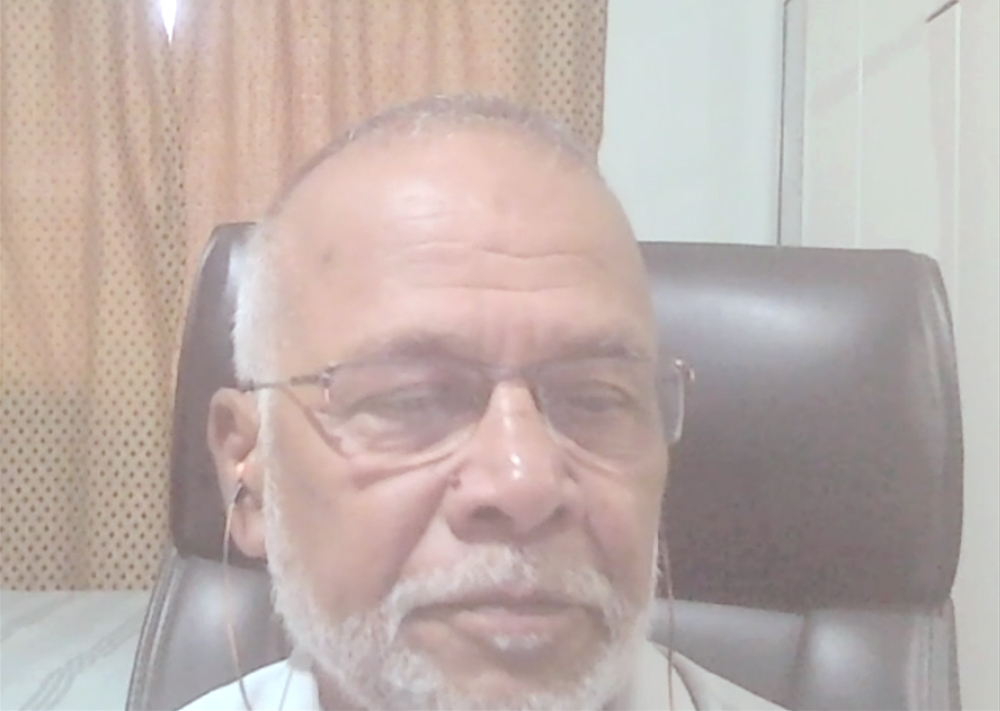
Mr. Nizamuddin Shaikh, Member, General Assembly, Institute of Objective Studies, moderated the proceedings.
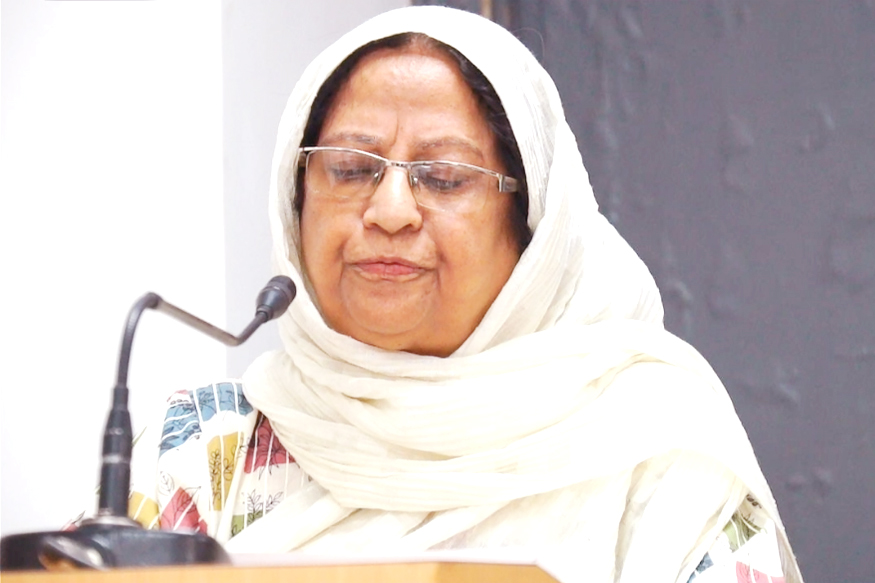
Vice Chairperson of the Institute, Prof. (Ms.) Haseena Hashia extended a vote of thanks to the attendees of the programme at the end of the function.
Go Back